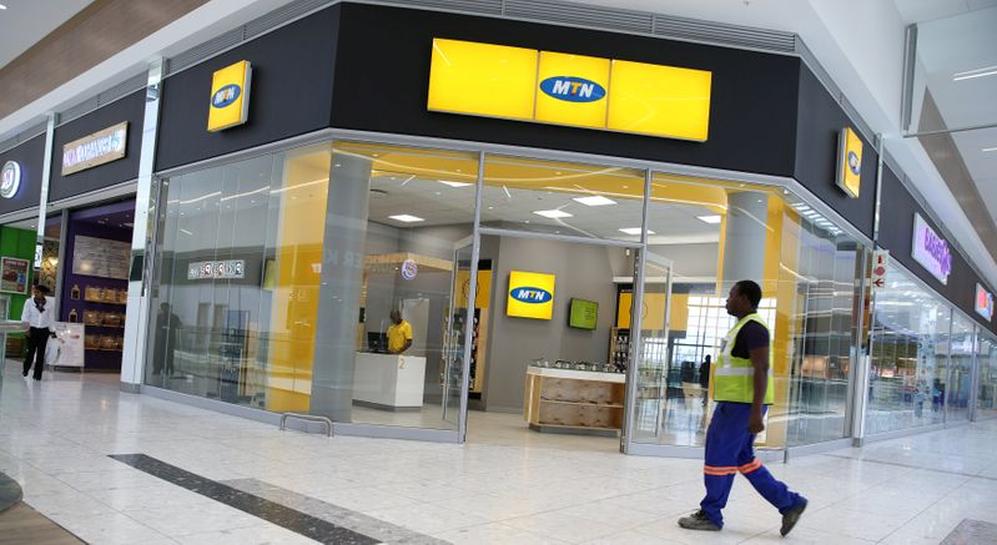Africa’s telecommunications giant positions itself at the forefront of the continent’s artificial intelligence revolution with ambitious $240 million infrastructure investment
MTN Group Ltd, Africa’s largest telecommunications company, is making a bold strategic pivot into artificial intelligence infrastructure with the launch of Genova, a dedicated AI data center business unit. The Johannesburg-based telecommunications giant is investing $240 million in its first AI-focused data center in Nigeria while actively pursuing partnerships with US and European firms to expand across the continent.
This move comes as Africa faces a critical infrastructure gap that threatens to exclude the continent from the global AI revolution, despite growing demand and significant market potential projected to reach $16.53 billion by 2030.

The Strategic Vision
MTN’s entry into the AI data center market represents more than just infrastructure development—it’s a comprehensive strategy to monetize existing assets while building for the future. Under the leadership of CEO Ralph Mupita, the company has identified artificial intelligence as a key growth driver that aligns with its broader digital transformation agenda.
“We are now in the commercial negotiation phase,” Mupita revealed in recent statements, indicating that MTN is actively finalizing partnerships with international technology providers. The company plans to directly invest in data center construction while potentially equipping facilities with its own hardware, creating a vertically integrated AI infrastructure ecosystem.
The Genova business unit will operate on a straightforward but ambitious model: build state-of-the-art facilities, equip them with AI computing power, and lease capacity to governments, enterprises, and third parties across Africa. This approach positions MTN as both an infrastructure provider and a facilitator of AI adoption throughout the continent.
The Nigeria Pioneer Project
MTN has already broken ground on its flagship AI data center in Lagos, Nigeria—a 9MW facility representing the company’s initial $240 million commitment to the sector. Nigeria, Africa’s most populous nation and largest economy, serves as the logical starting point for MTN’s AI ambitions, given its significant market size and growing technology sector.
The Nigerian facility will serve as a proof of concept for MTN’s broader continental strategy, hosting tenants that provide computing power while renting out capacity to businesses and government entities. The data center is designed to support both current AI workloads and future technological developments, with scalability built into its infrastructure design.
Industry observers view the Nigeria project as a litmus test for Africa’s readiness to embrace large-scale AI infrastructure investments. Success in Lagos could accelerate MTN’s expansion plans across its 19-country operational footprint, potentially transforming how AI services are delivered continent-wide.
Global Partnerships and International Collaboration
MTN’s AI data center initiative is not a solo venture. The company is actively courting partnerships with established US and European technology firms, recognizing that successful AI infrastructure requires global expertise and supply chain access. These partnerships are expected to provide critical components including specialized hardware, software platforms, and technical expertise.
The collaboration strategy reflects MTN’s pragmatic approach to entering a highly technical and capital-intensive market. By partnering with established players, MTN can leverage existing technologies and best practices while focusing on local market knowledge and regulatory navigation.
Potential partnerships could include arrangements with major cloud service providers like Microsoft, Google, and Amazon Web Services, which have already established limited presences in select African markets. These collaborations would allow MTN to offer enterprise-grade AI computing services comparable to those available in developed markets.
Addressing Africa’s AI Infrastructure Crisis
The urgency behind MTN’s initiative becomes clear when examining Africa’s current position in the global AI landscape. Despite representing over 17% of the world’s population, Africa accounts for less than 1% of global AI data center capacity—a stark disparity that threatens to marginalize the continent in the digital economy.
Recent studies reveal the depth of this challenge: only 5% of Africa’s AI talent has access to the computational power needed for complex tasks. This compute shortage creates a vicious cycle where limited infrastructure constrains AI development, which in turn reduces demand for additional infrastructure investment.
The financial barriers are equally daunting. In countries like Kenya and Senegal, the cost of a single GPU represents 75% and 69% of GDP per capita respectively, making individual access to AI computing resources prohibitively expensive for most developers and researchers.
Current continental leaders in AI infrastructure include South Africa, which hosts most existing computing power through facilities operated by Microsoft, Alibaba, and other international hyperscalers. However, this concentration leaves vast regions of the continent underserved, creating both challenges and opportunities for new entrants like MTN.
Market Potential and Economic Impact
The economic stakes of MTN’s AI infrastructure gambit are substantial. Africa’s artificial intelligence market is projected to experience explosive growth, with estimates suggesting expansion from current levels to $16.53 billion by 2030—representing a compound annual growth rate of 28.34%.
This growth trajectory reflects increasing digitalization across African economies, growing smartphone penetration, and rising awareness of AI’s potential applications in sectors ranging from agriculture to financial services. However, realizing this potential requires significant infrastructure investment, precisely the gap MTN aims to fill.
The broader economic impact extends beyond direct AI services. Improved computing infrastructure could accelerate digital transformation across multiple sectors, potentially unlocking billions in economic value. McKinsey research suggests that generative AI alone could deliver $5.4 billion to $8.9 billion in economic value across African consumer goods value chains.
For MTN specifically, the AI data center business represents a significant diversification opportunity. As traditional telecommunications revenue growth slows, infrastructure monetization provides a pathway to new revenue streams while leveraging existing assets like fiber networks and power infrastructure.
Technical and Operational Challenges
Developing AI data centers in Africa presents unique technical and operational challenges that MTN must navigate carefully. Power reliability remains a critical concern across much of the continent, with inconsistent electricity supply threatening the continuous operation requirements of AI computing workloads.
MTN’s telecommunications experience provides some advantages in addressing these challenges. The company has extensive experience with backup power systems, fiber optic networks, and technical operations across diverse African markets. However, AI data centers require significantly higher power densities and cooling capacities than traditional telecommunications infrastructure.
Connectivity represents another critical factor. While MTN operates extensive fiber networks across its markets, AI workloads generate substantial data volumes that require high-capacity, low-latency connections. The company will need to ensure its data centers have adequate connectivity to both local users and international AI platforms.
Skills development poses an additional challenge. Operating AI data centers requires specialized technical expertise that remains scarce across much of Africa. MTN will need to invest significantly in training programs and potentially recruit international talent to ensure operational success.
Competitive Landscape and Market Positioning
MTN’s entry into AI infrastructure occurs against a backdrop of increasing international interest in African technology markets. Global hyperscalers have begun establishing limited presences in select markets, while regional players across various industries explore AI adoption strategies.
However, MTN’s telecommunications background provides unique advantages in this emerging market. The company’s extensive fiber networks, power infrastructure, and regulatory relationships across 19 countries create entry barriers that pure-play data center operators would find difficult to replicate.
The Genova brand positioning emphasizes infrastructure monetization and platform openness, suggesting MTN intends to operate as a neutral provider rather than competing directly with cloud service providers. This strategy could facilitate partnerships with multiple international players while avoiding conflicts that might arise from exclusive arrangements.
Regional competitors may emerge as other major African telecommunications operators observe MTN’s progress. Companies like Safaricom, Vodacom, and Orange could potentially develop similar strategies, though MTN’s first-mover advantage and financial resources provide significant competitive benefits.
Regulatory and Policy Considerations
AI infrastructure development in Africa occurs within an evolving regulatory landscape as governments across the continent grapple with data governance, privacy protection, and digital sovereignty concerns. MTN’s multi-country operations require navigation of diverse regulatory environments, each with distinct requirements and approval processes.
Data localization requirements in various markets could actually benefit MTN’s distributed infrastructure strategy, as governments increasingly require certain data types to remain within national borders. This trend could accelerate demand for local AI computing capacity while creating barriers to purely cloud-based solutions.
The company’s established regulatory relationships across its operating markets provide advantages in securing necessary approvals and navigating policy changes. However, the specialized nature of AI infrastructure may require engagement with new regulatory bodies and compliance with emerging artificial intelligence governance frameworks.
Cross-border data flows represent another consideration as MTN develops its continental AI platform. Harmonizing operations across multiple jurisdictions while respecting local sovereignty requirements will require careful technical and legal planning.
Investment Implications and Financial Outlook
MTN’s $240 million initial investment in Nigerian AI infrastructure represents just the beginning of what could become a multi-billion-dollar continental buildout. The company has indicated plans for direct investment in additional facilities while seeking partnerships to accelerate expansion and reduce capital requirements.
The investment strategy reflects MTN’s confidence in Africa’s AI market potential while acknowledging the capital-intensive nature of data center development. By starting with a single flagship facility, the company can validate its business model before committing to larger-scale expansion.
Revenue projections for the Genova business unit remain confidential, but industry benchmarks suggest significant potential returns. AI computing services typically command premium pricing compared to traditional hosting, while capacity utilization tends to be high due to strong demand and limited supply in emerging markets.
The success of MTN’s AI infrastructure initiative could influence the company’s overall valuation, particularly if Genova demonstrates strong growth and profitability. Investors have shown increasing interest in infrastructure monetization strategies across the telecommunications sector, viewing them as pathways to sustainable revenue diversification.
Future Expansion and Strategic Roadmap
While Nigeria represents MTN’s initial focus, the company’s presence across 19 African countries provides a natural expansion pathway for the Genova business unit. Likely candidates for subsequent data center development include South Africa, Ghana, and Kenya—markets with relatively strong technical infrastructure and growing digital economies.
The expansion strategy will likely prioritize markets with favorable regulatory environments, reliable power infrastructure, and strong local demand for AI computing services. MTN’s existing telecommunications infrastructure can provide competitive advantages in site selection and connectivity provision.
International partnerships will play increasingly important roles as MTN scales its AI infrastructure operations. Relationships with hardware providers, software platforms, and cloud service providers will determine the company’s ability to offer competitive services while maintaining operational efficiency.
Technology evolution represents both an opportunity and a challenge for MTN’s long-term AI infrastructure strategy. Rapid advances in AI computing requirements could necessitate frequent infrastructure upgrades, while new technologies like quantum computing might eventually disrupt current paradigms entirely.
Conclusion: A Continental Transformation
MTN’s entry into AI data center infrastructure represents more than a corporate diversification strategy—it’s a potentially transformative initiative that could accelerate artificial intelligence adoption across Africa while positioning the telecommunications giant at the center of the continent’s digital future.
The success of the Genova business unit will depend on MTN’s ability to navigate complex technical challenges, secure strategic partnerships, and demonstrate sustainable profitability in an emerging market. However, the company’s telecommunications expertise, continental presence, and first-mover advantage provide significant foundations for success.
For Africa, MTN’s AI infrastructure initiative offers hope for bridging the critical compute gap that threatens to exclude the continent from the global AI revolution. By providing local access to enterprise-grade computing resources, Genova could enable African businesses, governments, and developers to participate more fully in the artificial intelligence economy.
The broader implications extend beyond technology adoption to economic development and digital sovereignty. African-owned and operated AI infrastructure could reduce dependence on international platforms while ensuring data governance aligns with continental priorities and regulations.
As MTN prepares to operationalize its Lagos facility and advance partnership negotiations, the telecommunications industry and African governments will be watching closely. The success or failure of this ambitious initiative could influence infrastructure investment strategies across the continent while determining whether Africa becomes an AI participant or remains an observer in the global digital transformation.
The stakes could not be higher. With global AI infrastructure investment accelerating and technological capabilities advancing rapidly, MTN’s timing may prove crucial in determining Africa’s position in the artificial intelligence ecosystem. The next 18 months will likely determine whether Genova becomes a continental success story or a cautionary tale about the challenges of infrastructure transformation in emerging markets.
This article was compiled from multiple industry sources and recent company announcements. MTN Group has not provided official comment beyond statements from CEO Ralph Mupita regarding the company’s AI infrastructure strategy.




